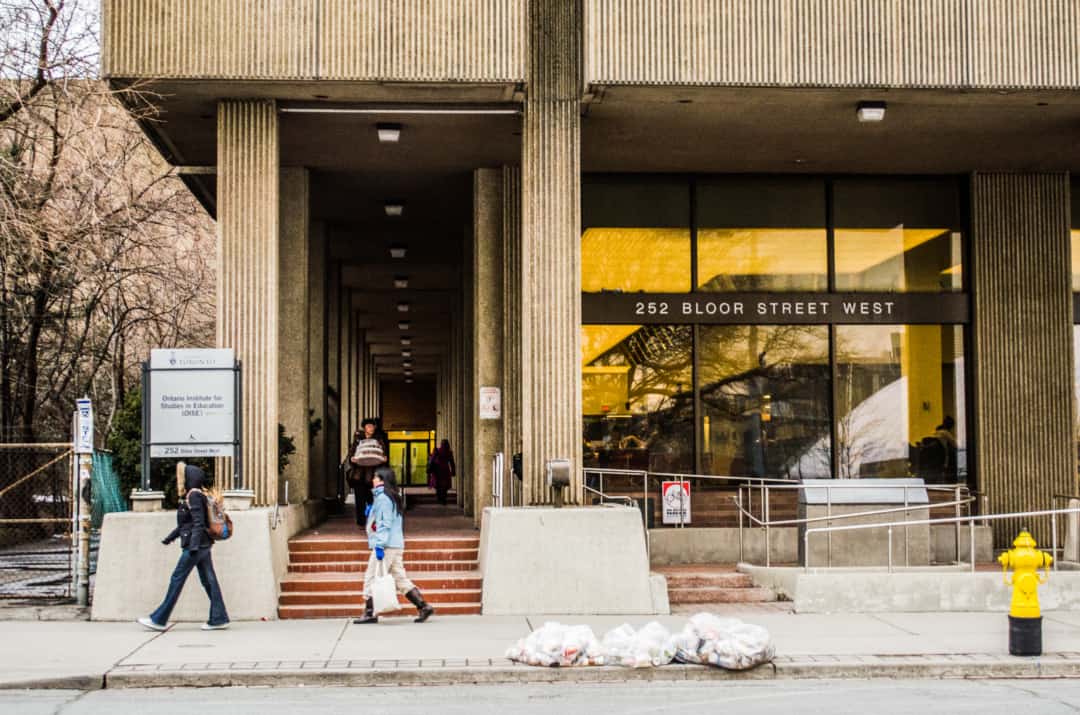Recently, The Varsity reported that the Ontario Institute for Studies in Education (OISE) has announced new plans to phase out its undergraduate degree program. OISE had been facing pressure from the provincial government to reduce its total enrolment since the province provides funding on a per student basis. Seeking to avoid devastating cuts, the OISE administration came up with a solution — replacing undergraduate students with masters’ degree students. Since masters’ degree students pay $2,700 more in tuition fees per year, OISE is able to avoid financial calamity with this move.
This is something that probably should have been done already. Ontario is facing an oversupply of teachers while experts continually cite the obvious: teaching quality is the single most important factor in determining success. A teacher who can be corrected by their students will lose their pupils’ respect, and soon the attention of others — despite how well trained they are from a pedagogical standpoint. OISE’s decision will hopefully create a new model, where teachers first develop a background in a teachable subject while earning a B.A. or a B.S., and then learn how to teach it with an M.Ed.
While the OISE decision is not in and of itself a problem, it is emblematic of the Ontario government’s irresponsible policies towards U of T and higher education in general. The current policy pushes a significant amount of the burden of OISE’s funding onto students, rather than taxpayers as a whole. In a world in which education has become the currency of success, the province of Ontario has developed a habit of shortchanging its universities.
Per student provincial funding has remained unchanged for years even as the cost of education continues to go up. Comparable institutions in the US have raised tuition to pay for new equipment and expertise, which forces students to take on immense levels of debt — a solution that is unavailable to U of T and other Ontario post-secondary institutions. The provincial government caps domestic tuition fees even as it refuses to supply funding, forcing the university administration to raise international tuition and forgo attracting talent to Ontario, or apply incidental fees as de facto tuition. Lately, the province has taken away the latter option, partially eliminating U of T’s flat fees policy without supplying the $16 million it will cost. Now Ontario’s politicians are discussing U of T’s policy of charging interest on fees before OSAP becomes available.
All of this leaves the U of T administration in a position where financial acrobatics are needed to keep the university afloat. The Varsity has reported on delayed maintenance prompted by the university’s lack of funds to address this issue. The university has relied on older professors, graduate students, larger class sizes, and adjuncts to fill places that ought to have been filled with young tenure-track professors. This is not merely destructive to recent Ph.Ds — it is unsustainable. Faculties, especially in the sciences, testify to overcapacity in classes and TAs who are unprepared for what they are supposed to be teaching. Simply put, without more funding, education in Ontario will suffer significantly.
We are in the midst of a provincial election. While transit has justifiably been the focus of all three parties, it is imperative to communicate the importance of strategic investments in higher education, especially in high performing and centrally located institutions like U of T, as well as greater institutional autonomy with regard to fees if teaching quality is to be protected. The U of T community needs to tell Ms. Wynne, Mr. Hudak, and Ms. Horvath that we want support, and that all Ontarians ought to share in the responsibility to support higher education.
Jeffrey Schulman is a second-year student at Trinity College studying classics.


